Nov 12, 2025. Weekly Dharma Assembly, JTS Medical Support Meeting, Meeting with Foreign Affairs and Security Experts
Hello. Today is the day when Jungto Society members hold their Weekly Dharma Assembly to reflect on their practice once a week.
After spending time at Dubuk Jungto Retreat Center until yesterday, Sunim departed from Dubuk at 3 AM this morning and headed to Seoul. After a 3.5-hour drive, he arrived at the Jungto Social and Cultural Center in Seoul at 6:30 AM.
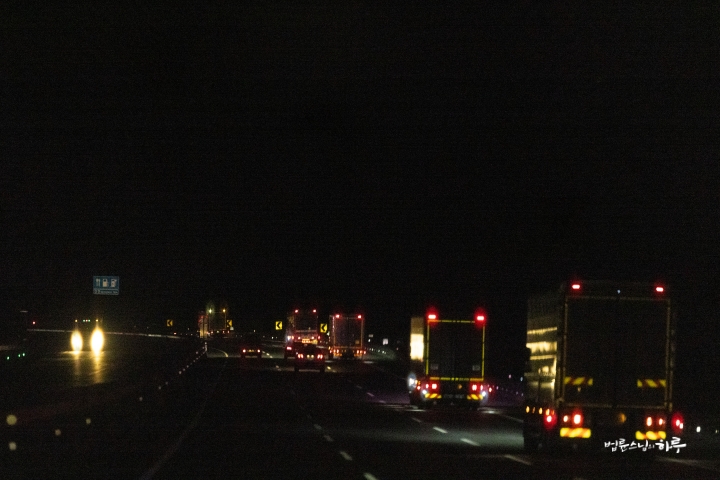
After breakfast, as daylight broke, Sunim headed to the Dharma Hall on the third floor for the Weekly Dharma Assembly. At exactly 10 AM, the assembly began with the recitation of the Three Refuges and the Heart Sutra. With about 100 people present on-site and approximately 4,000 Jungto Society members connected online, they watched a video of the “Youth Festa” event held at the Jungto Social and Cultural Center last weekend.
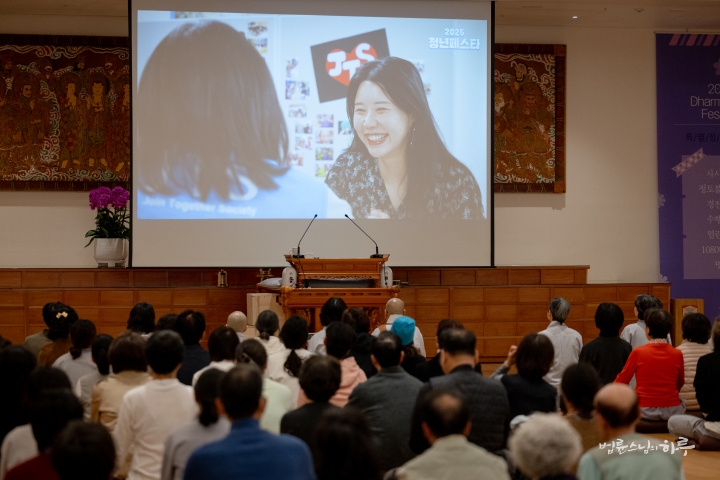
After the video ended, the President of Jungto Society reported on the results of the Youth Festa event. A total of 7,100 people registered for the event, with about 3,500 actually attending. To facilitate the event, approximately 280 youth volunteers, 180 regional Jungto Society members, and 200 students from the Jungto Buddhism Course and Sutra Course volunteered. The Jungto Society members expressed their gratitude to everyone who contributed with a big round of applause.
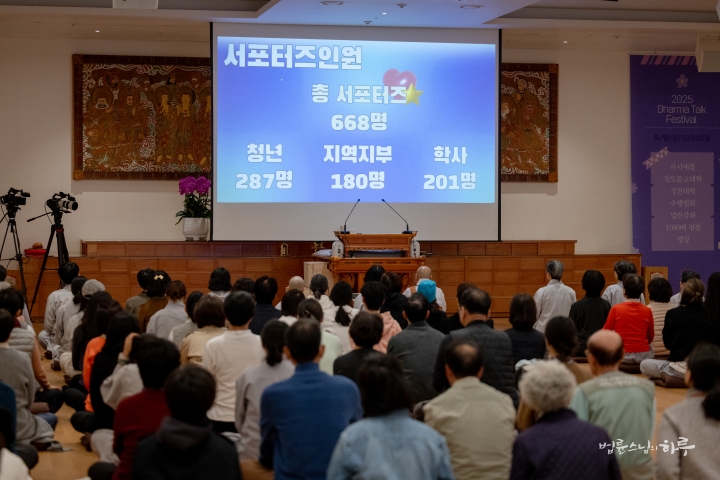
Following this, the assembly requested a Dharma talk from Sunim with three prostrations. Sunim shared news of the autumn colors spreading across the landscape and encouraged the volunteers who worked hard to organize the Youth Festa last weekend.
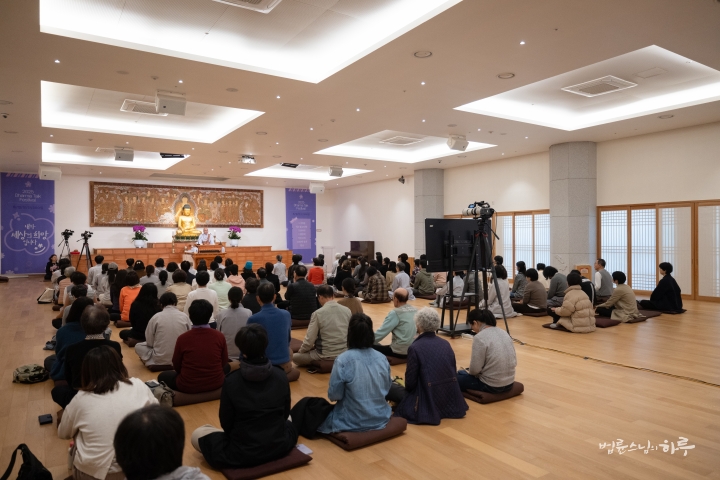
“This autumn, the harvest was slightly delayed due to frequent autumn rains. However, when I visited the countryside recently, I found that the harvest had already been completed. The only green remaining in the fields was from kimchi vegetables like radishes and cabbages. Next week, temperatures are expected to drop below freezing nationwide. While we used to describe Korea’s climate as having ‘four distinct seasons,’ that description hardly applies anymore as autumn has become so short. Summer heat continues through September, and winter arrives by mid-November, so the balance of the four seasons has been significantly disrupted. This year, in particular, the autumn foliage colored late. In the past, the foliage would peak by late October, but now the timing itself has been delayed.
Yesterday and the day before, I met with several senior monks I’ve known for a long time to discuss the future direction of Korean Buddhism and how to resolve conflicts in our society. During this time, I also visited several temples. I thought the autumn leaves would have already fallen, but unexpectedly, the autumn atmosphere was still fully present. Thanks to this, I was able to enjoy the foliage to my heart’s content.
Youth Festa: Deep Gratitude to All Volunteers
We just watched the video footage of the ‘Youth Festa’ that took place over three days last weekend. Those who worked the hardest for this event were none other than the members of the Special Youth Division themselves. And although they weren’t youth, many Jungto Society members supported the young people from behind the scenes. In particular, to guide visitors to the Jungto Social and Cultural Center, elderly members stood at every corner from far away holding directional signs. Their meticulous care for visitors was impressive, even to the point where one might wonder, ‘Is it really necessary to come all the way out here to guide people?’ Standing on the street holding signs is by no means an easy task. Thanks to those who volunteered silently without recognition, those who helped with parking at the entrance, and those who prepared meals for thousands in the kitchen, this event could proceed smoothly. I would like to take this opportunity to once again express my deep gratitude to all Jungto Society volunteers.
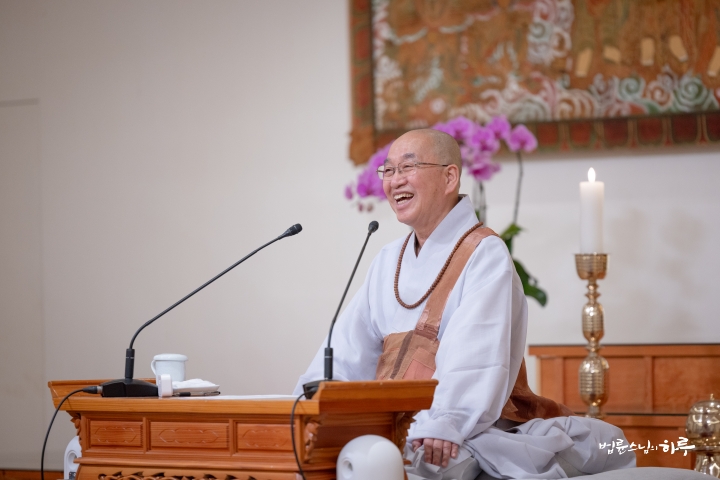
People say, ‘This is only possible because it’s Jungto Society.’ Organizing such an event internally without a professional planning company is by no means easy. These days, whether it’s companies or organizations, most events are outsourced to external planning agencies. However, the Youth Festa was planned and executed directly by the youth, with support from the community divisions. All the numerous volunteers needed for the event were Jungto Society members, and all performers participated through talent donation. These aspects are what have been evaluated as ‘the strength of Jungto Society.’
Of course, the venue space was a bit small, and the actual attendance of about 3,000 people compared to the target of 10,000 might leave some disappointment. Internally, it might feel insufficient. However, from an external perspective, having the space and personnel to plan and operate such a large-scale event independently is something to be envied.
So even if this Youth Festa fell slightly short of our expectations, we can take pride in ‘what we have accomplished.’ Let’s supplement what was lacking and use this experience as a foundation to create an even more substantial and meaningful youth event next time. This event was, so to speak, our first step taken as practice. I hope you will wrap it up well.”
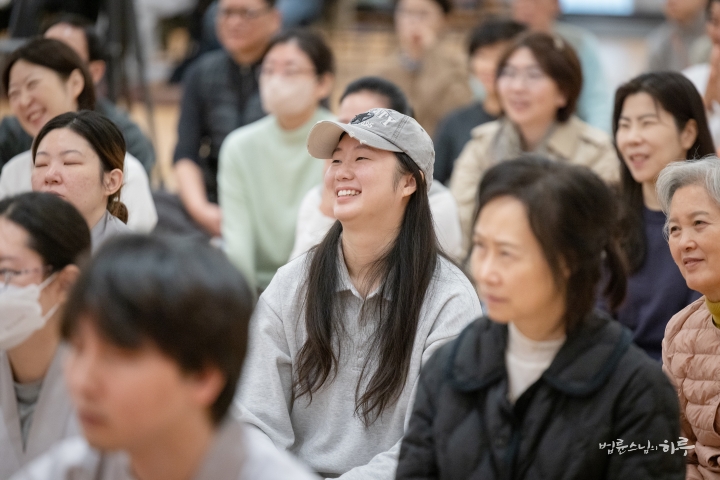
Following this, Sunim took questions from those who had registered in advance. During the 1.5-hour session, two people asked questions online and one person asked from the audience. One of them sought Sunim’s advice on how to experience letting go and awareness in daily life.
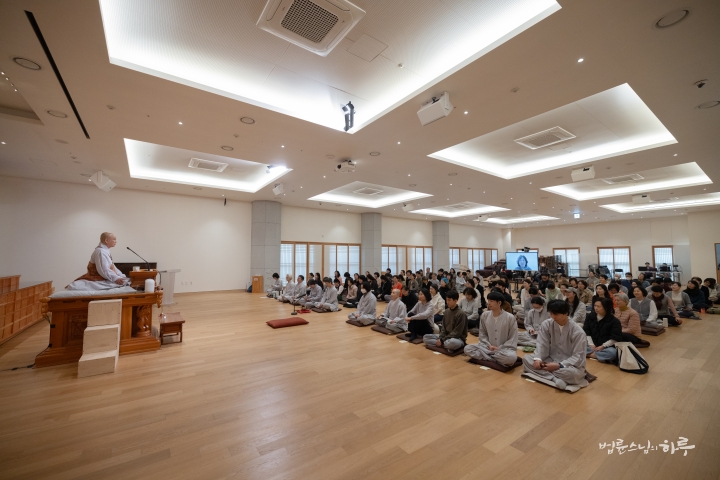
How Can I Let Go of Feelings of Fear, Injustice, and Shame?
“Letting go is actually ‘awareness’ itself. When awareness arises, letting go happens naturally – there’s nothing separate to let go of. When you’re angry, just recognize ‘I’m angry.’ When greed arises, recognize ‘I’m being greedy.’ If you’ve fallen, recognize ‘I’ve fallen.’ Awareness isn’t about doing something new; it’s about recognizing the current state of your body and mind as it is. In Chinese characters, it’s called ‘self-awakening’ (自覺), meaning being awake to oneself.
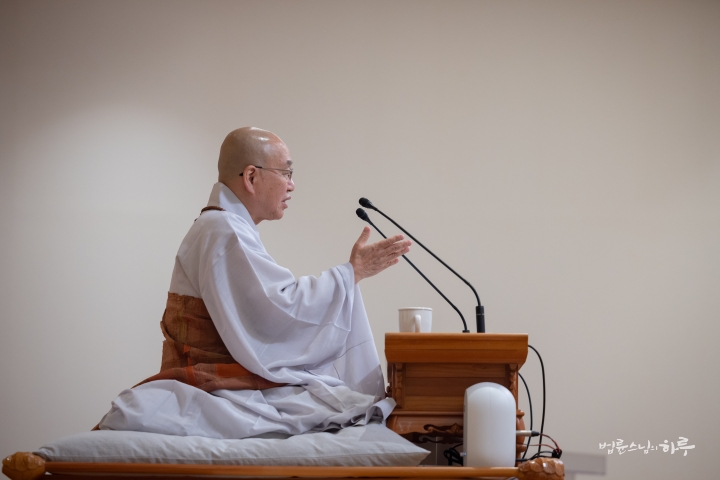
For example, long-term hospital patients sometimes don’t realize they have bedsores. Because their nerves don’t function well, they can’t feel the pain. Due to ignorance – not knowing – the wound gets progressively worse. If they had known it hurt, they could have started treatment immediately. Like this, you must first have awareness of your own state. You need to be aware that you have a problem.
However, sometimes we can’t let go even when we’re aware. What is an angry state? In fact, being angry is no different from being mentally ‘insane.’ If I’m aware that I’m angry but don’t know that this anger is a form of insanity, what happens? The anger grows bigger, and eventually it becomes impossible to let go of it. This is exactly the point you’re struggling with. An angry state is mentally a kind of ‘insane state,’ and in this ‘insane state,’ we can suffer great losses. That’s why we need to come to our senses, but we often don’t know we’re in an insane state. It’s because we don’t know our own state.
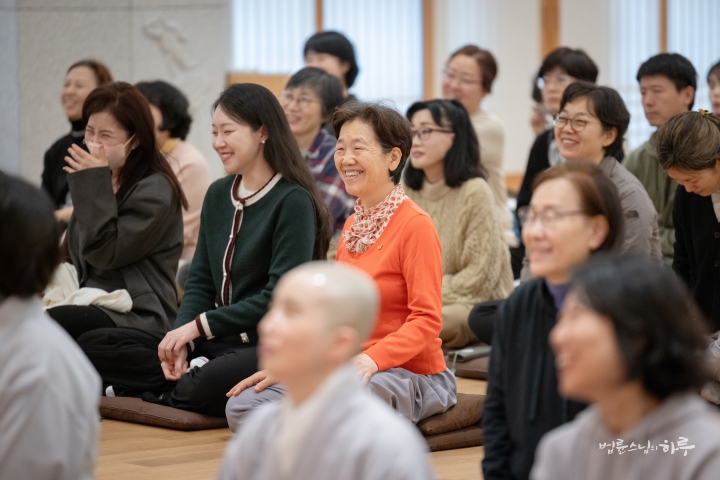
But the moment you recognize ‘I’m angry,’ you’re already aware that ‘I’m in an insane state right now.’ If you clearly know that this state is harmful and brings losses, the anger naturally disappears the moment you become aware of it. If there’s food with poison in front of you, no matter how much you want to eat it, if you know ‘there’s poison in this,’ you won’t eat it. Even without being told ‘don’t eat it,’ if you know it’s poisoned, you’ll avoid it. Why? Because you know that eating poison will kill you.
But even if you know that eating poison kills you, if you don’t know whether this particular food contains poison, you’ll end up eating it. Conversely, even if you know the food contains poison but don’t know that eating poison kills you, you’ll still eat it. Ultimately, the problem is not knowing that eating poison kills you. Knowing that ‘eating poison kills you’ is ‘enlightenment’ and ‘wisdom.’ Not knowing this fact at all is ‘fundamental ignorance.’
If you know that ‘eating poison kills you,’ you’ve awakened from fundamental ignorance. But what if you don’t know that the food you’re eating now contains poison? You’ll end up eating it and dying. It’s the same with anger. Even if you clearly know that being angry is an insane state, if you don’t know you’re angry right now, that insane state continues. Conversely, if you know you’re angry now but don’t know that this anger is an insane state, you’ll continue being angry even after recognizing it. In other words, knowing that ‘being angry is an insane state’ is awakening from fundamental ignorance. But if you can’t be aware in the moment when anger suddenly arises, that insane state continues.
So ignorance can be divided into ‘fundamental ignorance’ and ‘momentary ignorance.’ Awakening from fundamental ignorance is called ‘wisdom,’ and awakening from momentary ignorance is called ‘awareness.’ Awareness means that the moment you know there’s poison, you naturally don’t eat it. There’s no need to struggle to let go. So the expression ‘letting go’ is just a verbal expression for ‘a state where awareness continues.’
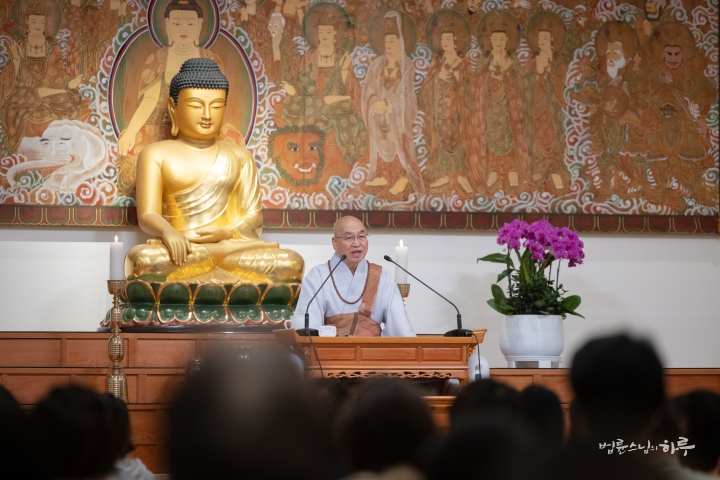
If you can’t let go even after becoming aware of anger or greed, it’s because you haven’t yet awakened from fundamental ignorance. For example, when you touch something hot, you know it’s ‘hot,’ but if you don’t realize you’re burning your hand and keep touching it, you’ll eventually burn yourself. Conversely, if you know that touching something hot will burn you but don’t know whether what you’re touching now is hot, you’ll still get burned. Ultimately, we need to awaken from fundamental ignorance to attain wisdom, and we need to be aware of our state when we’re caught in momentary ignorance at this very moment. But saying ‘I can’t let go even after becoming aware’ means you haven’t fully awakened from fundamental ignorance yet. Also, saying you know but can’t do it well means you’re not awake to yourself moment by moment – you only know it intellectually. It’s like knowing only in your head that ‘you shouldn’t eat poison,’ so when delicious food smells good, you just eat it anyway.”
“Yes, thank you. I understand well.”
Questions continued to follow.
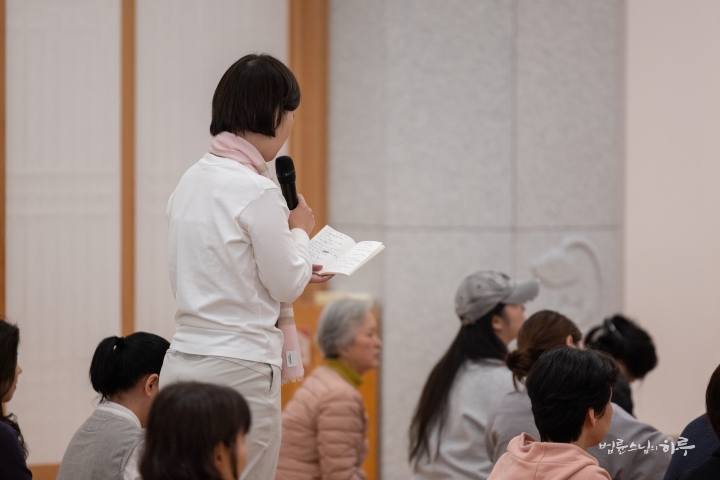
I heard that Bhutan’s suicide rate is rising and happiness index is declining due to the spread of internet and other technologies. If material satisfaction is achieved through JTS support, won’t development accelerate and damage environmental resources?
Is self-reflection possible through writing? I’m curious about how ‘right view’ – seeing correctly – is possible.
How should we understand ‘equality’ in the teachings and ‘age restrictions’ in practice?
After finishing the dialogue, it was 11:30 AM. Sunim provided detailed information about the upcoming Korean Language Lecture at the Blue Baedal Language Book Festival to be held at the Jungto Social and Cultural Center on the 20th, then concluded the Dharma talk.
The attending Jungto Society members continued with mindful sharing time in their groups, while Sunim moved to the basement dining hall for lunch.
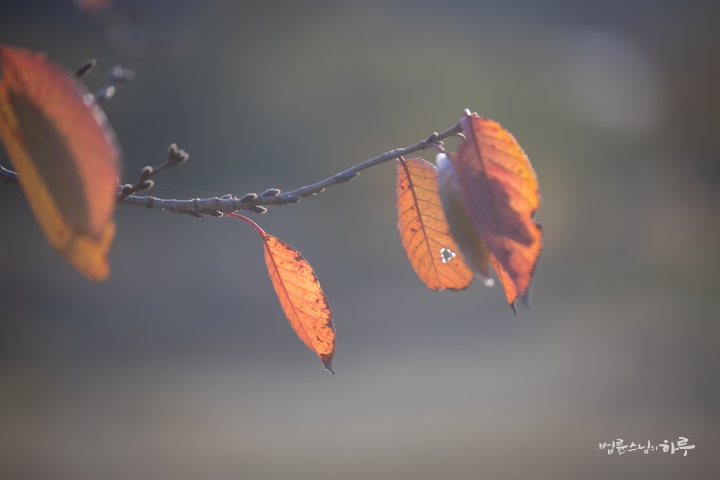
After finishing the meal, at 1 PM, President Kim Myung-shin of the Namsan Lions Club and Dr. Lee Jung-geun, an ophthalmologist, visited to discuss JTS’s medical support activities and medical equipment donations. While they initially considered support for Bhutan, due to many factors to consider, they decided to first explore donating medical equipment to JTS Philippines for annual medical support activities before concluding the meeting.
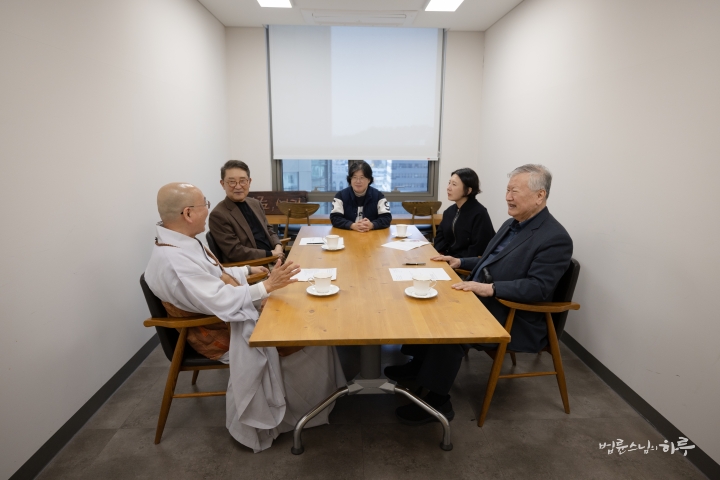
At 2 PM, Sunim participated online in the India Jungto Society’s extraordinary board meeting. India Jungto Society is currently promoting the construction of a Dhamma Center in Sankasia and is preparing an FCRA (Foreign Contribution Regulation Act) application for this purpose.
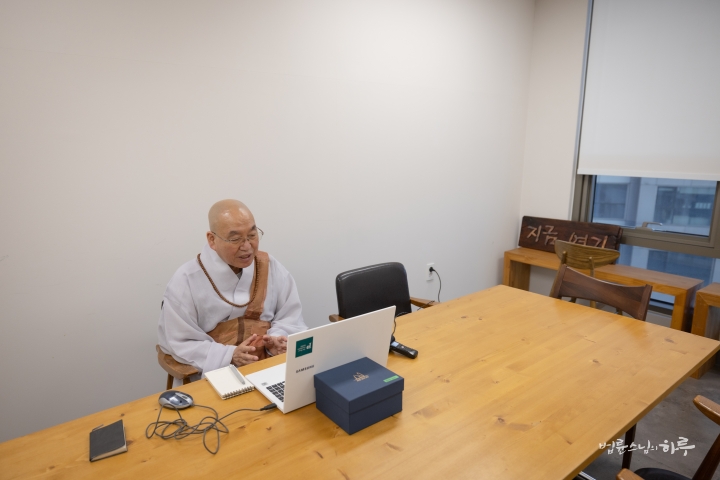
In this extraordinary board meeting, five new board members were recruited to strengthen the existing board, and a new board composed of local Indians was also formed for the FCRA application. After unanimously approving the proposed content by the board members, the extraordinary board meeting concluded.
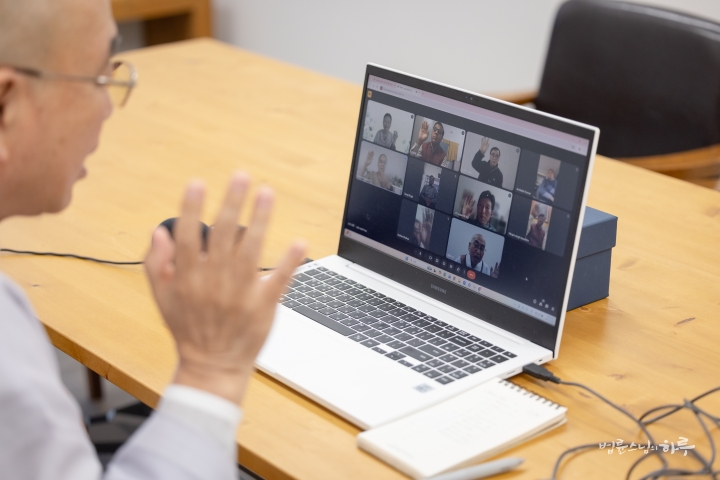
At 3 PM, Sunim continued meetings in The Peace Foundation conference room with foreign affairs and security experts present. This monthly regular meeting aims to develop ways to improve North Korea-US and inter-Korean relations. Today, after diagnosing the achievements of the recent APEC Summit in Gyeongju, they analyzed why a North Korea-US summit meeting did not materialize and explored various possibilities for future North Korea-US dialogue.
From 4 PM, representatives from George Mason University’s Songdo Campus visited for discussions. They discussed future cooperation plans, including co-hosting joint seminars between The Peace Foundation and George Mason University in Seoul and Washington D.C.
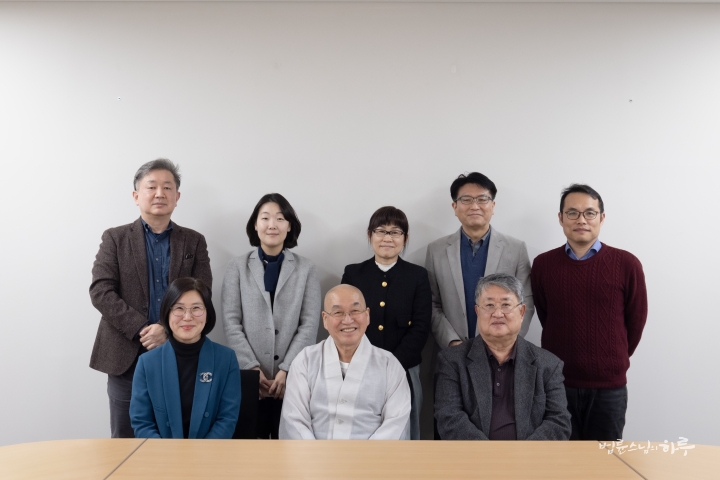
After sunset, Sunim handled various administrative tasks indoors before concluding the day’s activities.
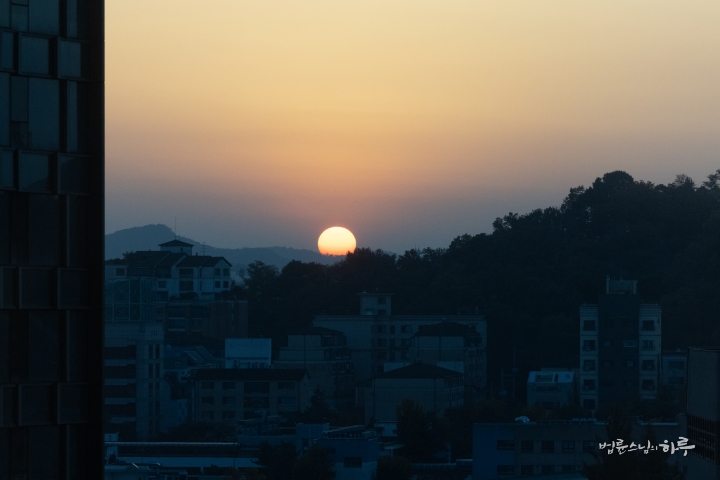
Tomorrow, Sunim will attend The Peace Foundation’s 21st Anniversary Symposium titled “The New Normal of War, North Korea-China-Russia Alliance! An Asian NATO?” where he will listen to expert presentations and engage in discussions.





